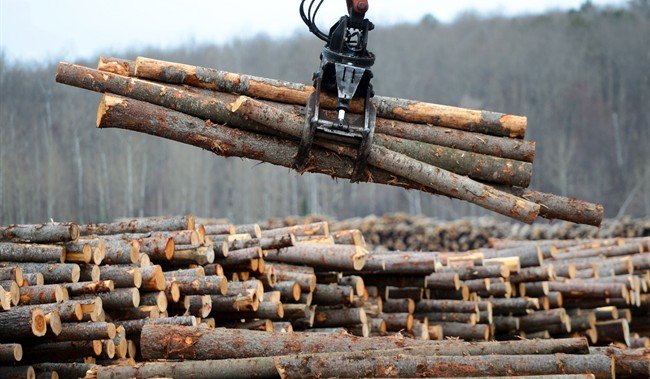
Freeland says Canada may retaliate against U.S. softwood lumber duty rate
Global News
The U.S. Department of Commerce said Wednesday that its final combined anti-dumping and countervailing duty rate for most Canadian producers will be 17.9 per cent.
Canada is prepared to retaliate against an American increase of duties on Canadian softwood lumber producers, Deputy Prime Minister Chrystia Freeland said Thursday.
“We will do precisely what we have done successfully with two previous American administrations: we state our case clearly and rationally. We also make very, very clear that Canada is prepared to retaliate, to defend the national interest,” Freeland said in response to criticism in the House of Commons.
Conservative foreign affairs critic Michael Chong said the Liberal government is not being effective against a series of protectionist trade measures by the administration of U.S. President Joe Biden. He was one of several Conservatives to pile on the Liberal government, which is facing mounting criticism over the growing list of trade irritants with Washington.
Freeland didn’t provide specifics about what retaliatory measures might be under consideration. But she was alluding to the tough fights Canada waged against the previous administration of Republican Donald Trump who imposed punitive double-digit tariffs on Canadian steel and aluminum at the height of the renegotiation of the North American Free Trade Agreement in 2018.
Trump used a section of U.S. trade law that allowed for the imposition of tariffs if a national security threat is perceived by Washington.
Canada hit back dollar-for-dollar countermeasures on American steel and aluminum, as well as a host of other products from whiskey to toilet paper to motorboats.
With Trump’s departure and the arrival of the new Biden administration there were high hopes in some quarters that a new level of trade equilibrium might be restored between Canada and the U.S., even though Democrats are traditionally more protectionist.
Hence the litany of protectionist woes that Chong listed off on Thursday: a proposed electric vehicle tax credit that poses a threat to Canadian auto sector jobs, the revival of “stringent” Buy American procurement policies, and “measures targeting our dairy farmers, actions against pipelines that have contributed to skyrocketing energy prices and now a doubling of softwood lumber tariffs.”













